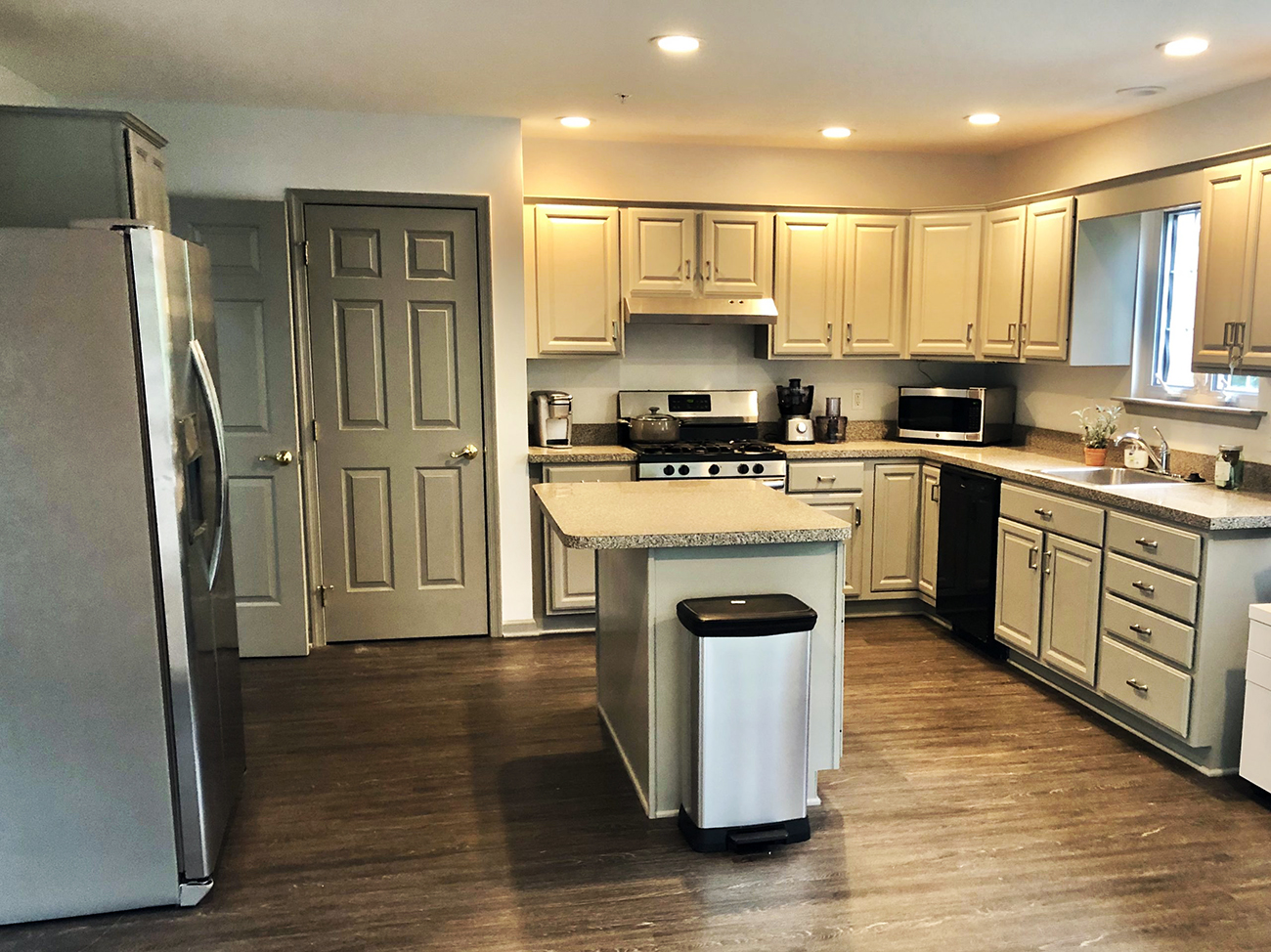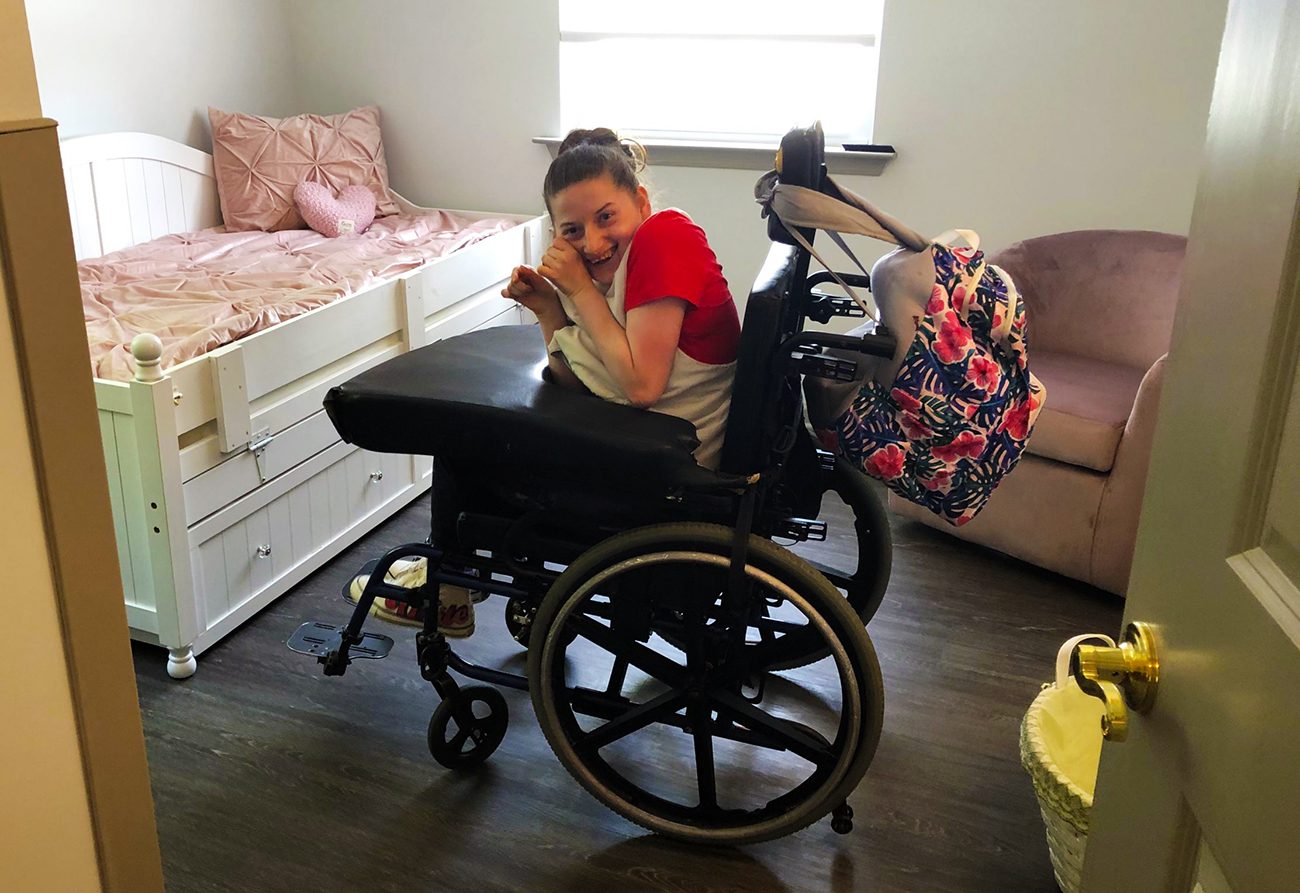An archdiocesan home for kids with disabilities has opened a new door in its pioneering history, dedicating its first community residence for three clients who are now adults.
A small group of staff and supporters from St. Edmond’s Home for Children gathered Oct. 23 for the blessing of St. Philomena Cottage by Philadelphia Auxiliary Bishop John McIntyre.
[hotblock]
Located in Newtown Square, the fully renovated house (named for a traditional patron of youth and children) meets the accessibility standards set forth by the Americans with Disabilities Act (ADA), with wide doorways, a large bathroom, a concrete wheelchair ramp and a lift from the garage to the living area.
For the three young women now living at St. Philomena, the design, and the house itself, balance the need for accommodation and independence – while addressing a critical gap in disabilities support, said Denise Clofine, administrator of the Rosemont-based St. Edmond’s.
As an intermediate care facility, St. Edmond’s serves a particularly vulnerable population: children aged six weeks to 21 years who are affected by a range of profound physical and intellectual disabilities.
The first Catholic home of its kind in the United States, St. Edmond’s is part of the continuum of support offered through the developmental programs division of archdiocesan Catholic Social Services (CSS), and a beneficiary of the annual Catholic Charities Appeal.

The design of St. Philomena Cottage is fully compliant with standards set forth by the Americans with Disabilities Act. (Photo courtesy of St. Edmond’s Home for Children)
Turning 21 can present a range of daunting challenges for individuals with disabilities and for their families. With a decades-long trend away from congregate care facilities, community- and home-based supports have become increasingly vital disability resources.
Yet families caring for a member with disabilities are often more economically vulnerable, while Medicaid faces increased enrollment demands and uncertain funding for its expansion.
Compounding the problem still further is the graying of the U.S. population: older parents are fearful of adult children with disabilities aging out of their benefits and, as University of Michigan law professor Samuel Bagenstos observed, “falling off the cliff.”
St. Edmond’s residents typically transition to an adult placement once they reach the age of 21, said Clofine, who described the process as “bittersweet for all involved” due to the “richness of relationships” built over years of care at the home.
[tower]
She added that such placement “is sometimes very difficult” due to the “medical fragility and complexities” of clients’ conditions, and described St. Philomena as “a dream realized.”
“Those we serve can continue to be with their friends and the staff who have become like family to them,” she said, noting that the cottage residents will retain round-the-clock support professionals as well as a nurse. “There is a true love and compassion shared between the two.”
Major funding for St. Philomena was provided by the Women’s Auxiliary for the St. Edmond’s Home for Children, whose president, Robin Conicella, said the cottage exemplified the group’s commitment to St. Edmond’s.
“The blessing … was a day filled with happiness, joy and love,” said Conicella, describing the auxiliary members as “an extraordinary and talented group of women.”
Established in 1917, the auxiliary has over the past century raised monies for both general care and specific projects, such as an aquatic therapy pool, a prayer and sensory garden, a music therapy program and the purchase of specialized vehicles for St. Edmond’s.
“We always look forward to serving the home, meeting their needs and working closely with Denise,” said Conicella.
For her part, Clofine found herself blinking back tears during the St. Philomena dedication ceremony.
“It truly was an emotional day,” she admitted. “As the bishop blessed the crucifix and the home, my eyes filled up.”
In her remarks at the event, Clofine quoted a 2013 address by Pope Francis to sum up the gathering: “The home is a special place in life, where life grows and can be fulfilled, because it is a place in which every person learns to receive love and to give love.”
PREVIOUS: A Baby’s Breath marks 20 years serving women in crisis pregnancies
NEXT: Local Pakistani faithful rally for kidnapped teen, endangered Christian girls



Share this story